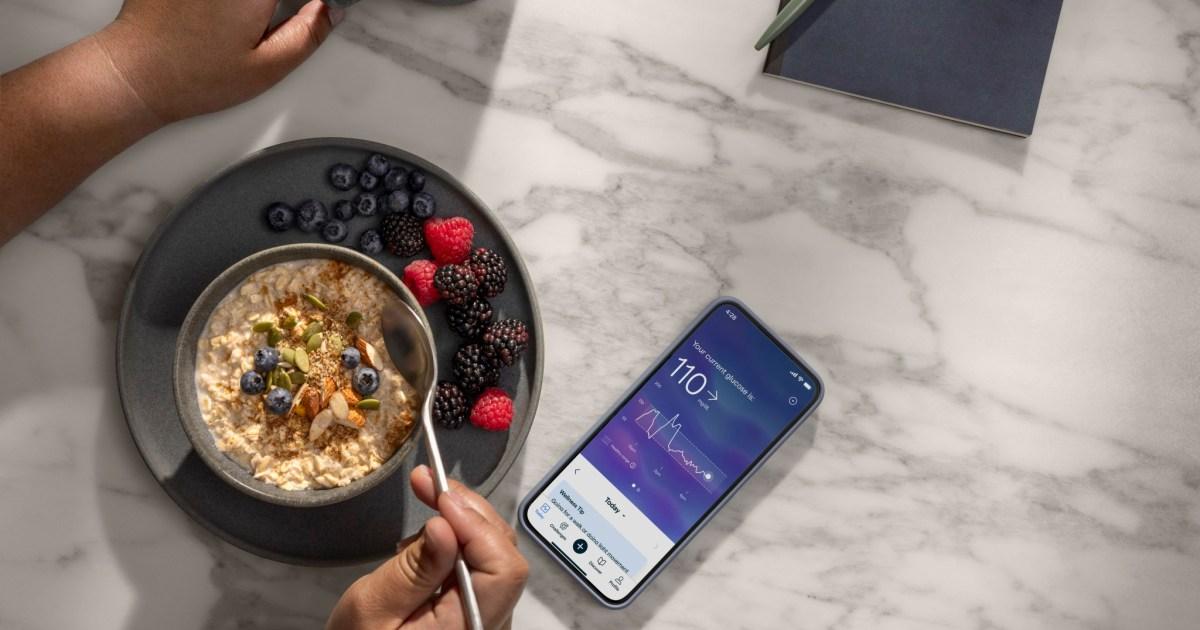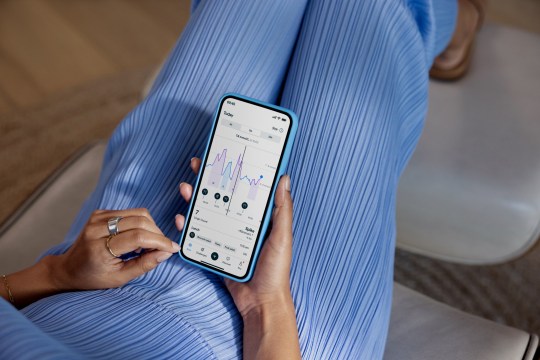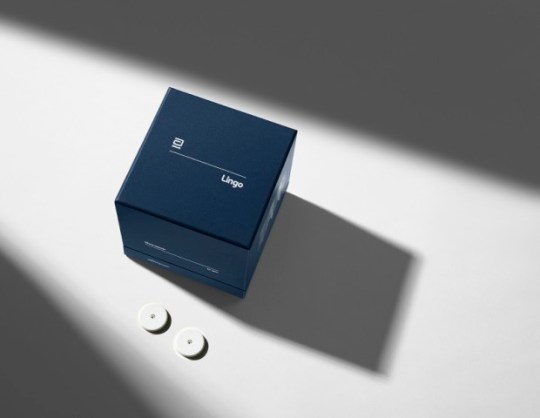Do you always feel hungry, even after eating? This can be exasperating, but by understanding the science behind your hunger you may be able to find a solution.
While there are lots of lifestyle and physiological factors that could explain your constant desire for food, one could be your glucose response to what you eat and drink.
Lingo, a biosensor, app and coaching programme by Abbott, a global healthcare leader, has been designed to empower people to understand their glucose levels and help them to create healthier habits.
Below, we look at some of the reasons you might be experiencing constant hunger pangs, and why taking a closer look at your diet could provide some answers.
Why not all hunger is the same
Your body runs on energy, and physical hunger is a sign that you need to consume more calories. Common symptoms of hunger include a growling stomach and difficulty concentrating, but these will usually go away after you eat.
Glucose and hunger are intimately linked, and a dip in glucose levels when you go for a period of time without eating is one of the most common reasons for genuine physical hunger.
However, you can also feel hungry when your body is not in a calorie deficit. This could be caused by emotional factors like boredom and stress, but it may also be due to your eating habits.
In one common scenario, eating lots of sugary or carb-heavy snacks can prompt your glucose levels to spike before a rush of insulin leads to a crash. The result is you feeling hungry – even though you might not need the calories.
To better understand how different foods affect your glucose levels and subsequent feelings of hunger, consider wearing a continuous glucose monitor (CGM) like Lingo.
CGMs track your glucose 24 hours a day, providing real time insights that could assist you with understanding what is causing your seemingly insatiable hunger – so you can adjust your eating habits accordingly.
5 reasons why you might always feel hungry
If you’re always feeling peckish this may be a sign your calorie intake is too low and you need to eat more. Regular exercise can also increase your appetite as your muscles demand more energy.
Constant feelings of hunger could also be due to factors relating to your diet and lifestyle, including the following:
1 – You’re not eating enough protein
Protein-rich foods are filling, so if you always feel hungry you should consider whether you are eating enough protein. Good sources of this vital macronutrient include eggs, meat, fish, soy and dairy.
2 – You need more fibre
Fibre, which is found in plant-based foods like wholegrains, fruit and vegetables, makes you feel fuller for longer by slowing down digestion. Not eating enough fibre and opting for low-fibre carbohydrates that bring about glucose spikes could be fuelling your constant desire for food. The NHS recommends adults eat 30g of fibre per day.*
3 – You are stressed
Stress itself has been shown to increase cravings, especially sugary or carbohydrate-heavy foods. Additionally, stress can prompt a sudden increase in your glucose levels. If you often feel stressed, consider calming tactics such as short walks or breathing exercises.
4 – You’re avoiding healthy fats
Fat is sometimes seen as the enemy, but healthy fats like those found in nuts, seeds and oily fish are satiating and contribute to keeping your glucose levels more stable.
5 – You need more sleep
Sleep plays a role in appetite control, so failing to get enough good quality shuteye can knock things off balance. Adults are encouraged to get between seven and nine hours of good-quality sleep each night, per NHS guidelines.
How to manage your hunger
If you feel like you’re always hungry, consider whether any of the above factors apply to you.
Eating a balanced diet including lots of fibre, protein and healthy fats will help you feel fuller and support more stable glucose. You may also want to try out different food combinations to see which ones are best at curbing your hunger – something the Lingo biosensor, app and coaching programme can help you with thanks to continuous glucose insights and real time data, supporting you to make healthier choices.
By tracking how your glucose levels and feelings of hunger change in response to food, you can start to identify patterns and adapt your style of eating to what works best for your body – helping to regulate your appetite while also boosting your overall wellbeing.
More than 10 years ago, Abbott introduced FreeStyle Libre — a continuous glucose monitor now used by 6 million people worldwide**. Lingo is made by Abbott, built on that proven technology.
The Lingo system is not for medical use and is intended for users 18 years and older. Lingo is not intended for diagnosis or management of any disease, including diabetes.
The Lingo programme does not guarantee that everyone will achieve the same results as individual responses may vary.
It is best to speak to your doctor for advice on starting any diet or exercise regime or if you have an eating disorder or a history of eating disorders.
© 2024 Abbott. All rights reserved. The biosensor housing, Lingo, and related trademarks are marks of the Abbott group of companies. Other marks are the property of their respective owners.
*https://www.nhs.uk/live-well/eat-well/digestive-health/how-to-get-more-fibre-into-your-diet/
**Data on file, Abbott Diabetes Care, Inc. Based on the number of users worldwide for the FreeStyle Libre portfolio compared to the number of users for other leading personal use sensor-based glucose monitoring systems.
Sign up to our guide to what’s on in London, trusted reviews, brilliant offers and competitions. London’s best bits in your inbox
This site is protected by reCAPTCHA and the Google Privacy Policy and Terms of Service apply.











